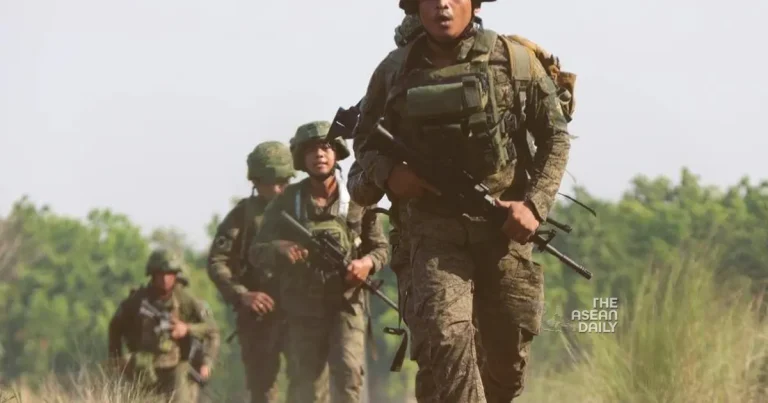21-8-2024 (MANILA) The Armed Forces of the Philippines (AFP) are intensifying their security protocols and loyalty measures in response to recent international espionage incidents, most notably the case of a US Army sergeant pleading guilty to selling classified information.
Colonel Francel Margareth Padilla, AFP spokesperson, assured the public that steps are being taken to prevent similar breaches within the Philippine military. This comes after Sergeant Korbein Schultz, 24, admitted to selling sensitive military data, including details about US weapons systems and joint exercises with Philippine forces, to a foreign national believed to be linked to the Chinese government.
The AFP is working closely with US counterparts to finalise the General Security of Military Information Agreement (GSOMIA), aimed at enhancing intelligence sharing and countering Chinese activities in the West Philippine Sea. Colonel Padilla stated, “We are well within our targets to have it signed by the end of the year. It will give the Philippines trust by the US to handle sensitive information.”
Joshua Espeña, a fellow at the International Development and Security Cooperation, emphasised the need for comprehensive personnel management improvements. “The AFP must strengthen all aspects of personnel management, from education to doctrine, leadership, and training,” Espeña said, highlighting the importance of addressing potential vulnerabilities among both military and civilian staff.
The military has implemented several measures to mitigate risks, including salary increases for personnel to reduce temptation for selling classified information, and enhanced cybersecurity training. “The modernisation of cybersecurity is crucial. There is training of our personnel on how to use safe channels and end-to-end encryption,” Padilla explained.
Recent events have heightened concerns about foreign espionage activities in the Philippines. An investigation is ongoing regarding Zhang “Steve” Song, a former Manila bureau chief for a Chinese newspaper, suspected of being a Chinese agent. National Security Council Assistant Director General Jonathan Malaya confirmed the presence of Chinese Ministry of State Security operatives in the country, stating, “That’s a normal thing countries do. It is now the responsibility of counter-intelligence security.”
Former Supreme Court judge Antonio Carpio has called for an update to the country’s anti-espionage laws, which currently only recognise treason during wartime. “We have to update criminal laws on treason. It should be punishable during wartime and peacetime,” Carpio argued, emphasising the need to protect against modern espionage tactics.




